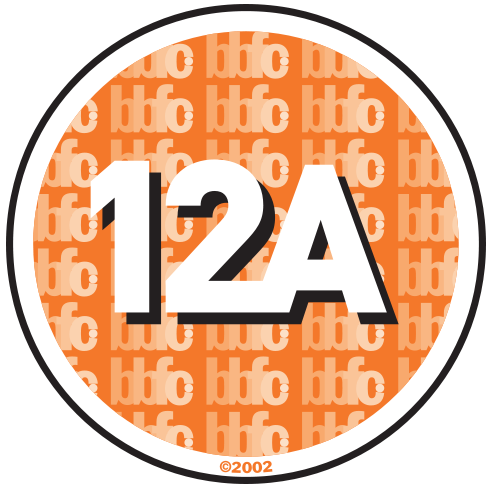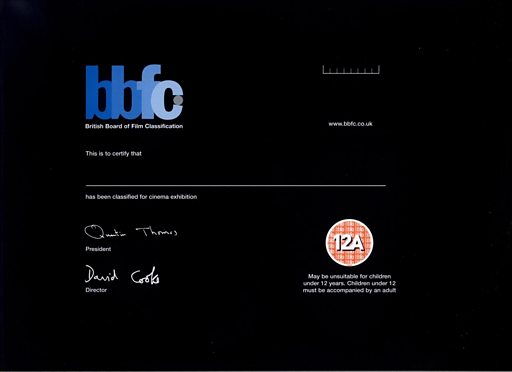

- Social Profiling - This is like a class/hierarchy system that starts from higher managerial to the lower levels. This means:
A = Higher managerial (e.g.surgeons, bankers) - Well paid professionals
B = Middle Management (e.g. lawyers, teachers) - Fairly well paid professionals
C1 = Skilled Non-manual 'White Collar' (e.g. junior management, bank clerk)
C2 = Skilled worker 'Blue Collar' (e.g. electricians, plumbers)
D = Semi and Unskilled manual (e.g. driver, postman)
E = Lower level (e.g. part time workers, unemployed, students)
- Demographic Profiling - This categorises people into a more generic group:
Age, Gender, Race, Location, Family Life Cycle, Sexuality
This affects whether or not these people would see it because people of different categories like different things such as men liking action films over women.
- Psychographic Profiling - Building up exemplar profiles in terms of individual personality to represent the different types of people within audiences. It is broken down into:
Mainstreamers/Conformists - Tend to like to follow what the crowd does
Aspirers - Following in the footsteps of a chosen path
Succeeders - Confident in success that has been achieved
Reformers - Challenging the establishment by making a statement for change
Individualists - Actively ignoring trends such as fashionTherefore a viable target audience would be people aged 15 and over in the C1, C2, D, E classification because through observation, thinking about ourselves (aged 17) and as well as our peers we realised that this audience would engage the most with our short thriller film. Furthermore, mainstreamers would also fit this category because they would follow the crowd that enjoys our genre of film, also meaning a larger audience would view our film.
Not all audiences can view a specific film though because of certain reasons which is why every country has a film classification board that mediate, moderate and regulate films so that they are suitable for chosen audiences. For example, if the film classification board find that a film has scenes which they do not believe is suitable for the selected audiences; then they will inform the key senior production staff to make some changes through editing or else the rating will be changed appropriately.
.jpg?itok=Xx_5RnhW)
These age ratings, otherwise known as certificates are broken down into 5 main age categories in order to protect certain individuals of groups such as children from watching something that might affect them psychologically. They are, ‘U’, ‘PG’, ‘12’, ‘15’ and ‘18’ - in terms of producing an opening sequence for a short thriller film, my film will most likely be a 15 or 18, however the latter tends to be more of a ‘wet horror' which is not what I am planning on carrying out.
'U' (Universal):


Suitable for all ages – All audiences would be able to see
my film, but there would be complications in how younger audiences would
interpret my film and consequently this my thriller film could not be passed with this rating. This would also be because it would be difficult to include an appropriate level of suspense with this certificate rating.
An example of this film is 'Toy Story 3' (2010) which was given a 'U' rating because it does not go against any of the guidelines such as
violence, which requires restriction for younger more impressionable audiences. It follows a positive moral framework which means that anybody can see it.
Trailer for 'Toy Story 3'
'PG' (Parental Guidance):


General – Almost all audiences can view these films.
However, this rating is not for a typical thriller film therefore meaning that this rating is not right for the genre of my film. The rating has considerable and similar issues to a 'U' certificate when concerning the key thriller genre codes and conventions especially with some subgenres such as action and psychological thrillers.
The BBFC awards the film ‘G-Force’ (2009) with a PG rating because
the theme of violence might be overstated or a little too much for some younger
audiences to handle but still has some comedic elements to balance it out - parents should assess whether or not their child should
watch the film, ergo the “guidance” part of the rating.
Trailer for 'G-Force'
'12'/'12A' (Advisory):



Suitable for children aged 12 years and over – this is the
age at which children are able to start to enjoy and view violence but still
not the grouping for which I want to be able to make my short film.
‘Bourne Legacy’
(2012) has been granted a 12 rating because it “contains moderate violence”. This
connotes that audiences of this rating and above can handle basic
concepts/levels of violence and can be exposed to such so long as it is not too
violent or graphic.
Trailer for 'Bourne Legacy'
'15':


Suitable for people aged 15 years and over – People at this
rating have a concept of the themes that are on the classification guidelines
and can view moderate levels of these. This is my target audience for my short
thriller film as I want my audience to be able to get to
grips with it but not so much as to go all out with the themes e.g. violence, swearing...
A 15 rating has been given to ‘Kick-Ass’ (2010) because it “contains
strong language, once very strong, & strong bloody comic violence”. This
has been done purposefully to protect younger audiences from being
psychologically affected and influenced to exhibit such behaviour because it is
viewed upon as morally wrong for this age group.
Trailer for 'Kick-Ass'
'18':


Suitable for people aged 18 years and over – this is the
highest rating given by the BBFC and they believe that audiences of this rating
are mature enough to experience the themes portrayed by these films. This is
not the type of rating I would consider representing my film because if I were
to carry out scenes which contained for example, violence, to the full extent
that I could, then it would become more of a ‘wet horror' which is too risky
to use because it can be mistaken for a horror.
The film ‘A Clockwork Orange’ (1971) has been presented as an
18 because it “contains strong violence and sexual violence” which is only
suitable for audiences of this rating because they can handle it
psychologically unlike the people classified under the lower ratings who could
not.
Trailer for 'A Clockwork Orange'
No comments:
Post a Comment